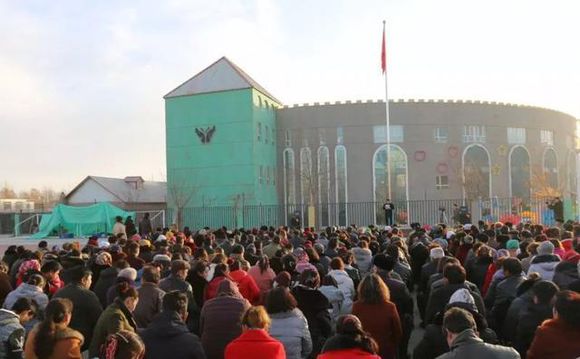China’s Campaign Against Uighur Diaspora Ramps Up
In its attempts to control Uighurs abroad, the Chinese government is holding families hostage.
Mahmut, a Uighur living in a Scandinavian country, describes 2017 as the “saddest” year for his family. Born to secular Muslim parents, Mahmut, who asked to be identified by a pseudonym, says his family’s troubles began in late 2016 when the Chinese government pressured a cousin and his wife to return to China’s far western region of Xinjiang from Egypt.
Local authorities threatened to imprison his parents and confiscate their property if his cousin, who was studying theology, did not return. When Mahmut’s cousin arrived in Xinjiang, the authorities jailed him and his wife.
Then, in early summer 2017, Mahmut tried to call his mother, who was recovering from a recent hospitalization. No one picked up, and Mahmut feared for the worst.
Communication with his parents was already sporadic, and when his father finally picked up the phone, Mahmut could sense fear in his voice. “Your mother went to study,” he told Mahmut, saying that community service officials had instructed her to go.
As Beijing continues its clampdown on Xinjiang, the state is using overseas Uighurs’ families in China as a way to pressure them.As Beijing continues its clampdown on Xinjiang, the state is using overseas Uighurs’ families in China as a way to pressure them. And over the past year, the Chinese government has intensified its campaign to surveil and intimidate the diaspora, according to Uighurs and outside experts following the issue.
“This is clearly part of the determined push to silence overseas critics,” says Kevin Carrico, a lecturer in Chinese studies at Macquarie University in Sydney. “Whether Uighurs, Tibetan, Han, Australian, or American, anyone who is outspokenly critical of the party-state’s increasingly ridiculous policies is going to eventually feel pressure.”
A Turkic-speaking minority, Uighurs in China and abroad have faced increasing repression from the state over the past few years in response to a low-level insurgency in Xinjiang, a reaction rights advocates argue is vastly disproportionate.
In Xinjiang, the government has established a sophisticated surveillance network that mixes informers, guards, and high-tech measures such as a DNA database, and thousands of Uighurs — potentially up to 10 percent of the ethno-national group — now languish in re-education camps.
With Xinjiang locked down, China is now looking to rein in the Uighur diaspora, often outspoken in its opposition to Beijing’s rule. Last year, China ordered some Uighurs studying abroad to return home or risk having their families punished. In Europe, Chinese police contacted Uighurs in France demanding personal information, and China also detained relatives of six U.S.-based reporters working for Radio Free Asia’s Uighur service.
Parhat, an American citizen — who also asked not to be identified by his real name — faced problems similar to Mahmut. In October 2016, police arrested Parhat’s niece under the pretext that her laptop contained copies of forbidden Islamic texts.
She was released after a month, only to be arrested again in June 2017.


